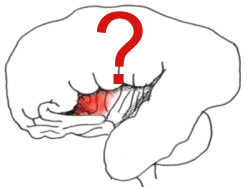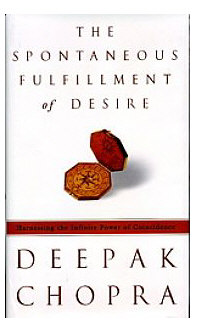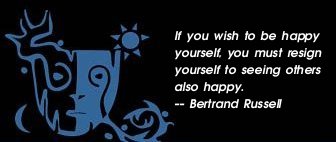|


A Crossroads of Time and Desire
by Honora Foah
Co-president & Creative Director
Mythic Imagination Institute
Love and hate, gratitude and resentment, self-confidence and embarrassment, trust and distrust, empathy and contempt, approval and disdain, pride and humiliation, truthfulness and deception, atonement and guilt.
What do these things have in common? Apparently, they are all sensed (generated?) in the insula. What is the insula, you say? An interior region of the brain. Neurologists say it is the wellspring of social emotions, things like lust and disgust, pride and humiliation, guilt and atonement. It helps give rise to moral intuition, empathy and the capacity to respond emotionally to music.*
Well.
Apparently if someone damaged your insula, you might not be able to feel any emotional relationship to music. Your whole sense of how time progresses more slowly or more quickly depending on what you are doing could change or go away. Desire for food or sex or cigarettes could disappear.
Recently, a friend of mine has been having trouble with his brain. One of the things he keeps talking about, despite the fact that he does not use a computer, is his constant worry about 'identity theft'. His mind
is working metaphorically even though he no longer is able to understand that. To watch the theft of his identity progress day by day is to ask ever more deeply, "Who are you?" Or "Who am I?"
Often when people ask that, I say, you are what you desire. Being conscious of what we desire seems to me the most holy of occupations. More and more research on the brain shows that we have an inflated idea of our ability to make choices. Vastly inflated. I believe Jung said something like the conscious mind is a little raft floating in the great unconscious sea. It seems to me that using the light of the conscious mind to illuminate what we want most deeply is the core of responsibility. If I desire your car, I can try to buy it, I can steal it, I can make arrangements to borrow it sometimes, I can surrender the desire. But if I do not know that somewhere I am wanting, wanting your car, I may find myself barbing my speech to and about you, feeling sorry for myself in a general way, why don't I ever get something nice, undermining our friendship, suddenly blowing a project we work on together. Because I didn't bring the wanting, wanting into a place where I could negotiate with it and you and with myself. It may not change the desire, but the quality of our relationship can have many currents and this wanting the car can stay in one strand without having to unconsciously poison the rest.
 Who are you? What are you? Maybe I would say a person is a crossroads of time and desire. (Does this mean we are our insulas?) Who are you? What are you? Maybe I would say a person is a crossroads of time and desire. (Does this mean we are our insulas?)
Desire is a holy thing. Desire does not arise from conscious choice. It is just there, an expression of the person. Maybe not an integrated expression. One part of us so wants another huge helping of pasta, but another part wants to be able to walk and not waddle, and so the lesser desire may get quashed. Or not. But the desire reveals in the most splendid way. It is one of my secret pleasures to carefully watch people's faces when they order dessert. Hidden faces emerge, often those of children, happy, guilty, sly, intoxicated children.
Desire is the original condition for life and the font of creativity. Why not remain in heaven if you don't want anything? Why be born at all? (Who are you?)
So, we choose to enter time, to walk a linear path, pushed and pulled by desire.
 The idea for this issue of Mythic Passages, 'Desire and Synchronicity,' arose from the marvelous title of a book. I confess I haven't read the book, but a little while back while talking to Deepak Chopra about what he might want to do at Mythic Journeys, he said one of the ways that he connected to archetypal work was through his passionate interest in Jung's perception of synchronicity and in fact he had written a book called Synchronicity, the Spontaneous Fulfillment of Desire. I've used that thought as a touchstone ever since. ** The idea for this issue of Mythic Passages, 'Desire and Synchronicity,' arose from the marvelous title of a book. I confess I haven't read the book, but a little while back while talking to Deepak Chopra about what he might want to do at Mythic Journeys, he said one of the ways that he connected to archetypal work was through his passionate interest in Jung's perception of synchronicity and in fact he had written a book called Synchronicity, the Spontaneous Fulfillment of Desire. I've used that thought as a touchstone ever since. **
When suddenly the world becomes synchronous, the fulfillment of desire constellates to give us what we want. We have all experienced this, the coincidence of events that draw us toward what we have been
thinking about, feeling about, wondering about, wanting to connect with.
I can't help but think of the little insula.
Here is a place in the brain where what we want and our sense of time are centered. And then there is this: when a person is a long-time meditator, the anterior insula thickens. Curiouser and curiouser.
Meditation, a discipline where one experiences being out of time, makes the insula bigger, more sensitive and more powerful.
The 'lucky', the 'genius', the 'in the right place at the right time' people. What do they think about their power? Here's a little tidbit from Mozart:
-
-
Neither a lofty degree of intelligence nor imagination nor both together go to the making of genius. Love, love, love, that is the soul of genius.
I can't help but think of that little list at the top of the page about the insula.
I don't know anything about the insula, I don't know a lot of things. I don't think people are their insulas. I think the insula is a crossroads, a physical place in our bodies whose brief is to integrate much of what it means to be human and consciously alive. The insula is an organ of meaning and as such, it is a crossroads of time and desire.
I wish you synchronicity.
* Sandra Blakeslee NY Times 6 February 2007
** Completely random offering: Deepak Chopra on the Colbert Report
Return to Passages Menu
Subscribe to the Passages e-newsletter
|

